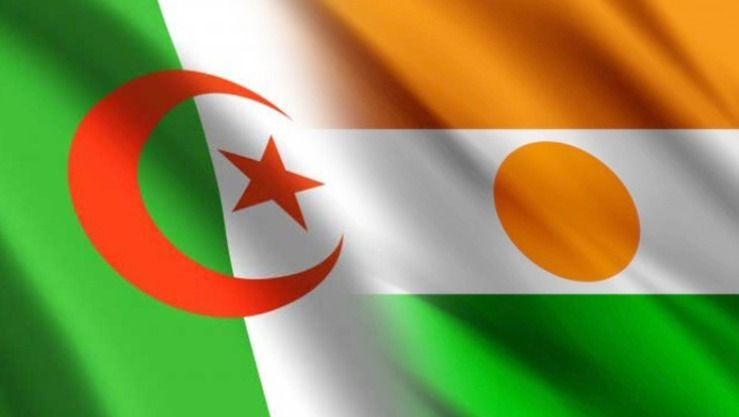
-
Published: 02 October 2023

The Algerian Foreign Ministry announced that the ruling military in Niger has accepted the Algerian mediation initiative, based on a "six-month transitional phase"to find a political solution to the crisis caused by the July coup.
Edited by| Hugh Gey
Politic section - CJ journalist
Niamey– October,2,2023
"The Algerian government has received, through the Ministry of foreign affairs of the Republic of Niger, an official correspondence stating that it has accepted Algerian mediation aimed at developing a political solution to the crisis in this brotherly country,"the Algerian foreign ministry said in a statement published by state media.
On August 29, Algeria announced a political plan to resolve the crisis in Niger, based on giving the putschists six months to return to the "constitutional and democratic order", while rejecting any military intervention in the southern neighbor.
"President Abdelmadjid Tebboune has instructed Foreign Minister Achmed attaf to travel to Niamey as soon as possible in order to start preparatory discussions with all interested parties on ways to activate the Algerian initiative,"the statement said.
The statement also stated that " this acceptance of the Algerian initiative strengthens the option of a political solution to the crisis in Niger, and opens the way to providing the necessary conditions that would facilitate the end of this crisis by peaceful means, in order to preserve the interest of Niger and the entire region."
During the announcement of the political solution plan, attaf said that the leader of the coup, General Abdelrahman Tiani, "demands a transitional phase, lasting a maximum of three years," but Algeria considered that the transitional process could take place in six months, so that the coup would not become a reality.
In the details of the Algerian plan, attaf explained that "the goal of this track is to formulate political arrangements with the participation and consent of all parties in Niger, without excluding any party whatsoever, provided that the duration of these arrangements does not exceed six months".
He explained that these arrangements "will be under the supervision of a civilian authority headed by a consensual figure who is accepted by all spectrums of the political class in Niger and will lead to the restoration of constitutional order in the country," refusing to disclose the name of the proposed consensual figure.
Since the coup, the economic community of West African States (ECOWAS) has imposed political and economic sanctions on Niger, and has also threatened armed intervention.
Mohamed Bazoum, who has been detained in his presidential residence since the coup and still enjoys the support of France, turned to the ECOWAS Court of justice to secure his release.
At the end of August, Ahmed attaf undertook an African tour that took him to Nigeria, Benin and Ghana, where he presented the details of the Algerian initiative.
According to Minister attaf, Algeria will push its initiative in three directions "internally with all interested and active parties in Niger, regionally with neighboring countries and member states of the economic community of West African States (ECOWAS), especially Nigeria, as it currently chairs the community, and internationally with countries that want to support efforts to find a peaceful way out of the crisis".
On Saturday, the head of the military council that emerged from the coup, General Abdurrahman Tiani, who did not announce his abandonment of the request for a transitional period of three years, declared that "we do not have the right to spend five years in government. You have to be elected to do that".
He stated that he wants to organize a "national dialogue" to formulate new texts governing political life in Niger, noting that "the problem does not lie in democracy. Elected figures sometimes deliberately stifle texts to do only what is on their minds, "he said in two television interviews, attributing the coup to the" waste of public money " by former leaders.
The previous regime had announced the formation of an anti-corruption commission. After being criticized by Western and African countries, the Nigerian Military Council has concluded new alliances with Mali and Burkina Faso, which are also led by the military.
Tiani pointed out that he signed the pact of the Sahel countries aimed at establishing a joint defense structure, explaining that "an economic agreement will follow".
{source}<script async src="https://pagead2.googlesyndication.com/pagead/js/adsbygoogle.js?client=ca-pub-4474625449481215"
crossorigin="anonymous"></script>
<!-- moss test ad -->
<ins class="adsbygoogle"
style="display:block"
data-ad-client="ca-pub-4474625449481215"
data-ad-slot="6499882985"
data-ad-format="auto"
data-full-width-responsive="true"></ins>
<script>
(adsbygoogle = window.adsbygoogle || []).push({});
</script>{/source}
